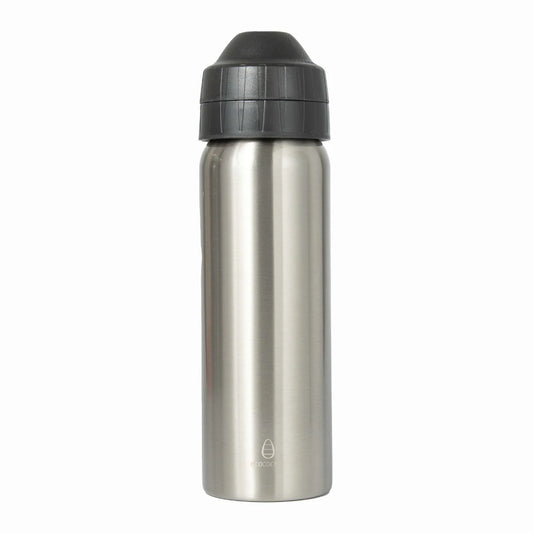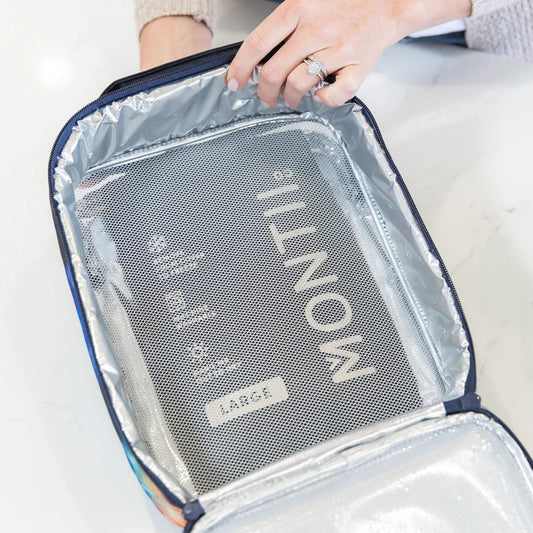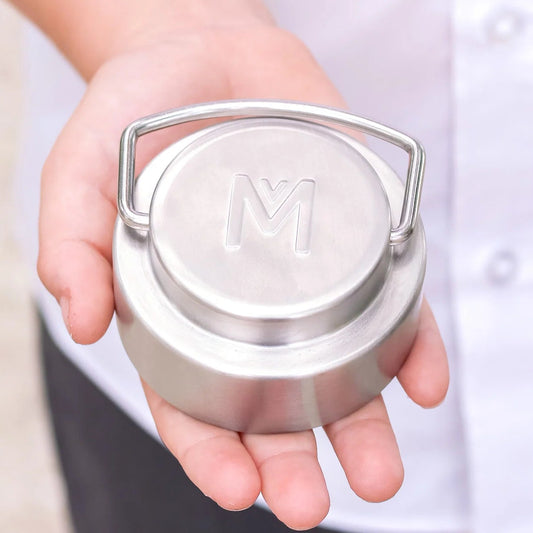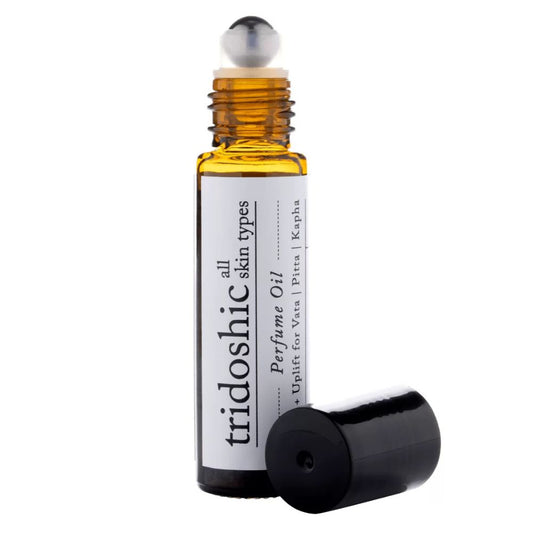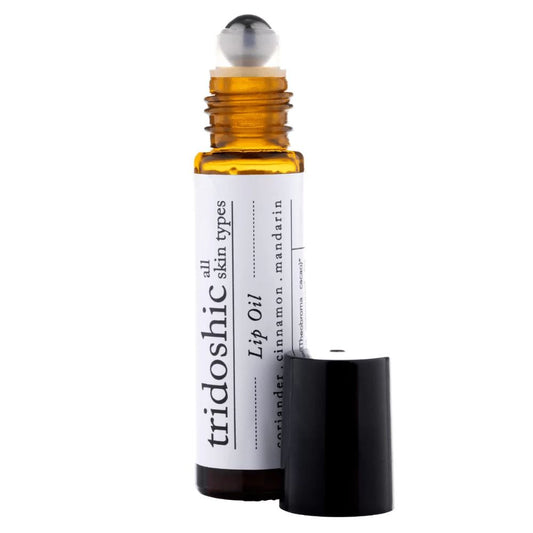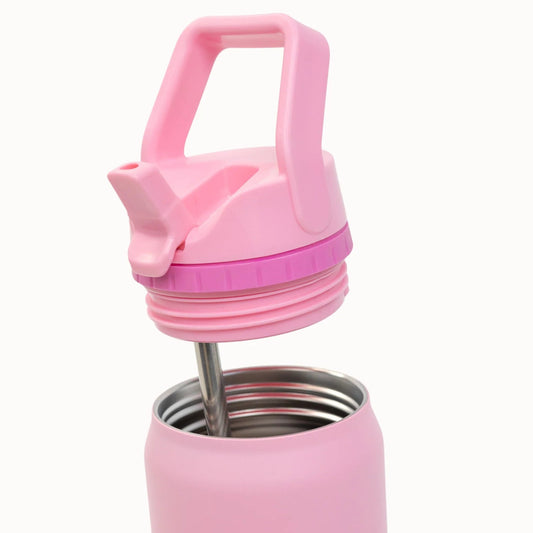
Fragrance is sold to us as romance in a bottle, the loving hug of freshly laundered sheets, or a tropical holiday in your shampoo. But, behind that scented whiff is an industry built on secrecy, chemistry, and marketing magic.
At Biome, we choose to be 100% free from synthetic fragrance—not because we don’t love beautiful scents, but because the way the industry works doesn’t align with our values of transparency, safety, and environmental care.
Here are 12 fragrance truths that might change the way you think about scent—eye-openers that make for great conversation starters!
1. Smelling fragrance means chemicals are entering your body
When you inhale a scent, tiny volatile molecules travel deep into your nasal passages and dissolve into the mucus that coats your olfactory epithelium—the tissue responsible for smell. Here, they bind to receptors on olfactory cilia—microscopic, hair-like projections growing from sensory neurons.
These cilia send signals directly to your brain, which interprets them as “almond croissant” or “fresh laundry.” Every sniff is a chemical interaction between your body and the air around you.
Why it matters: Smelling isn’t just noticing an aroma—it’s direct chemical contact with your body’s sensory system. And, sometimes, those chemicals are engineered from petrochemical feedstocks (e.g. coal tar, toulene, xylene, benzene), solvents like diethyl phthalate, and fixatives such as synthetic musks.
2. Fragrance isn’t just in perfume
Fragrance hides in laundry powder, nappies, “unscented” wipes, sanitary pads and tampons, toothpaste, pens, paint, printer ink, rubbish bags, and even toys.
Why it matters: You may be exposed to fragrance chemicals all day without ever spraying perfume. This is called cumulative fragrance exposure—small amounts from multiple products and environments adding up over the course of the day, building what scientists call a “chemical body burden.”
3. ‘Nature-identical’ often starts in an oil barrel
Many “natural” scents start life as petroleum-derived molecules in a lab—chemically identical to plant compounds, but not harvested from plants.
Why it matters: Labels may suggest lavender fields, but the origins are often petrochemical.
4. Some fragrance chemicals linger in your body
Certain synthetic musks and phthalates resist breaking down, and have been detected in human fat, breast milk, and umbilical cord blood.
Studies have found these chemicals in breast milk from mothers who don’t even wear perfume—exposure comes from multiple everyday products.
Why it matters: Today’s exposure can last for years—and pass to future generations.
5. ‘Fragrance’ on a label can mean 100+ chemicals
The single word “fragrance” or “parfum” is a placeholder for a proprietary blend of potentially hundreds of synthetic compounds.
Why it matters: Without disclosure, you can’t know what you’re putting on your skin or into your home.
6. “Unscented” doesn’t mean no fragrance
Some “unscented” products contain masking fragrance to cover up the smell of other ingredients.
Why it matters: You might be choosing fragrance without realising you are contributing to your daily cumulative exposure.
7. Ingredients banned in perfume can appear in cleaning products
Some chemicals banned from fine fragrance as they are considered too risky for direct skin application in perfume, but are still allowed in air fresheners, cleaners, or detergents.
Why it matters: If it’s not safe to wear, why is it safe to spray in your home?

8. Fragrance allergies are among the most common worldwide
Fragrance is one of the top causes of allergic contact dermatitis globally, alongside nickel and preservatives. Many people, myself included, develop itchy rashes after switching laundry powder, without realising the culprit is the added fragrance.
Why it matters: Many people suffer reactions without knowing fragrance is the trigger.
9. The same scents are used in toilets and perfume
Core aroma chemicals are often used across product categories—from fine fragrance to floor cleaner to toilet blocks.
Why it matters: Your favourite perfume may share a main ingredient with the public loo!
10. Your nose can “switch off” while your body still responds
Olfactory fatigue means you stop consciously smelling a fragrance after a while, but you’re still inhaling and absorbing it.
In fact, someone may think they need to reapply perfume because they can’t smell it anymore—yet everyone else around them still can.
Why it matters: Just because you can’t smell it doesn’t mean it’s gone.
11. Fragrance chemicals travel and stick
Ever hugged someone wearing strong perfume and found you can still smell it on your jumper hours later? Scent molecules cling to hair, fabrics, and dust, meaning you can carry other people’s perfume or air freshener home with you.
Why it matters: Your home and body can be sponges for unwanted scents.
12. Fragrance marketing sells feelings, not just scents
Fragrance brands use evocative stories—“first love,” “sunlit mornings,” “the warmth of home”—to make you feel the scent will give you joy, romance, or cherished memories. But they tell you nothing about what's really inside the bottle.
Why it matters:These emotional promises have nothing to do with the actual safety or composition of the fragrance.
Fragrance exposure isn’t a one-off event—it’s incremental and adds up over the day. You might wake up with scented fabric softener on your sheets, shower with fragranced shampoo, apply perfumed skincare, walk through someone’s perfume cloud on the train, work in an office with air fresheners, and clean up at home with scented sprays. Each small exposure layers onto the next, so by bedtime your body has processed a cocktail of chemicals from dozens of sources.
What you can do
-
Read labels carefully and look for full ingredient disclosure.
-
Choose truly fragrance-free for daily products, especially for skin or home air.
- Be sceptical of “natural” scent claims—ask if they’re plant-derived or synthetic.
Read more about how you can fragrance your home naturally.
Every product offered at Biome is free from synthetic fragrance. We also offer products that are completely free from all fragrance, including essential oils, such as our fragrance free soaps for sensitive skin.
And you certainly won't find fragrance in our bin liners!
And here's a recipe for How to Make Your Own Natural Perfume Oil
Related reads
5 Reasons Biome is a Fake Fragrance Free Zone
How To Avoid The Toxic Effects of Synthetic Fragrance
The Best Fragrance Free Soaps for Sensitive Skin
12 Truths About the Mystery Fragrance Ingredient
The Fake Fragrance Illusions: How Companies Sell Emotion in a Bottle


